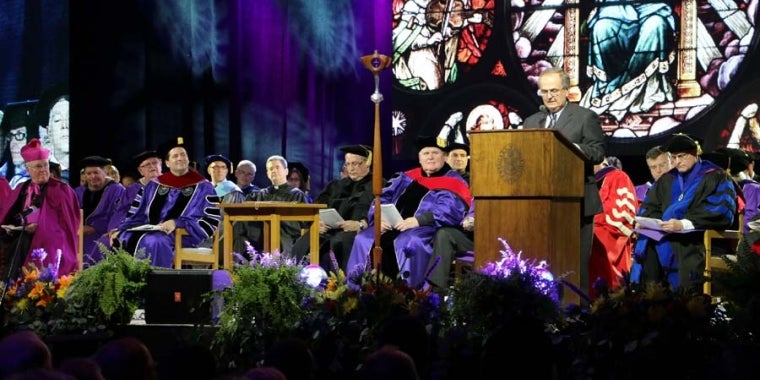
SUNY2020 plan lays groundwork for public higher education
George D. Maziarz
June 26, 2011

For the first time in the history of the State University of New York (SUNY), students and families will be able to properly plan for the cost of a college education in a predictable manner. The NYSUNY 2020 plan, enacted into law at the end of the recently-concluded Legislative Session, will allow each State University of New York and City University of New York (SUNY and CUNY) campus to raise tuition by $300 per year for five years.
This plan replaces an era of dramatic tuition increases with a system that is predictable and empowers students and parents to plan for college expenses. For the past 20 years, the average annual SUNY tuition increase has been 6.7 percent, well above the five-year, $300 increases included in this legislation. During that time, there were periods without tuition increases followed by sudden and dramatic tuition spikes of up to 40 percent.
Such spikes and uncertainty in tuition is detrimental to students, families, and the university system. The NYSUNY 2020 legislation prevents these types of dramatic and unpredictable tuition hikes from reoccurring. The modest increases will help build these institutions into regional economic development generators and world-class centers of research and innovation. It will also allow schools to add more faculty, educate additional students, increase class offerings and improve graduation rates. The plan also allows students and parents to better plan for college expenses, and places SUNY at the center of New York's economic revitalization.
For the first time, SUNY and CUNY will guarantee tuition credits or discounts to students least able to afford tuition payments. In order to maintain affordability and access to higher education, the legislation provides tuition credits to students who are eligible to receive a TAP award.
The NYSUNY 2020 Challenge Grant Program - a joint program between the Governor and State University of New York (SUNY) - incentivizes bottom-up, individualized long-term economic development plans on SUNY campuses and the surrounding communities. It enhances SUNY's academic mission while maintaining affordability and places college campuses across New York at the center of the state's regionally-based economic revitalization strategy. The act authorizes $60 million in immediate capital for the four University Centers in Albany, Stony Brook, Binghamton and Buffalo.
Two of the four SUNY university centers have already made presentations to Governor Cuomo's administration, SUNY Chancellor Nancy Zimpher and the Legislature:
- · The University of Buffalo's UB 2020 plan has the potential to revitalize Western New York by creating jobs, breathing new life into the City of Buffalo, and helping its namesake university become one of the nation's leading public research institutions.
· Stony Brook's plan will use public-private partnerships to create thousands of jobs and reinvigorate the business climate across Nassau and Suffolk counties. In addition, it will ensure that Stony Brook becomes one of the country's most advanced public research facilities.
Share this Article or Press Release
Newsroom
Go to Newsroom
